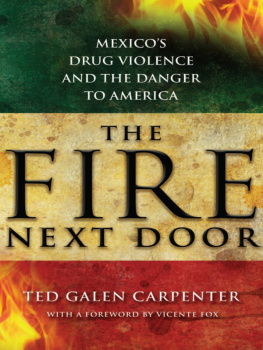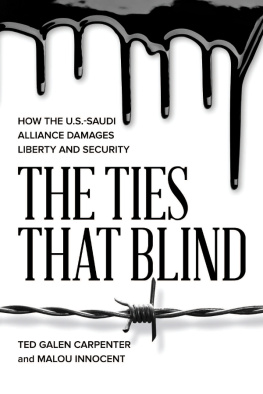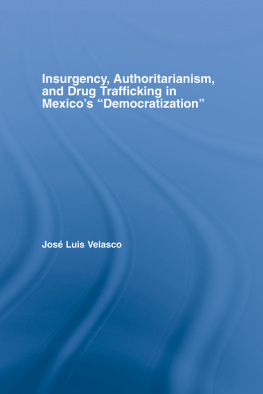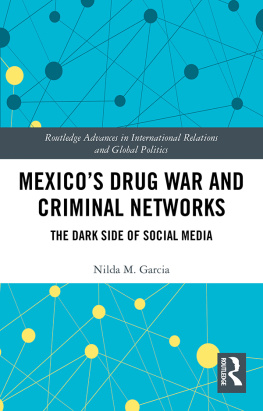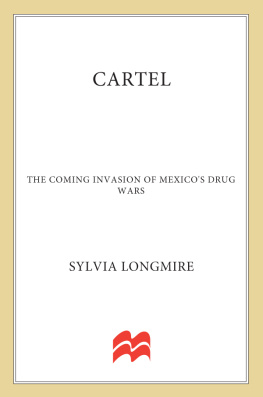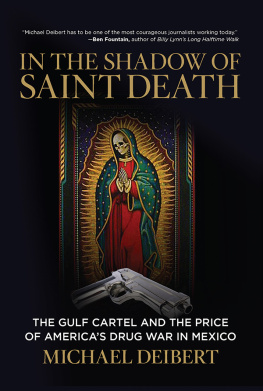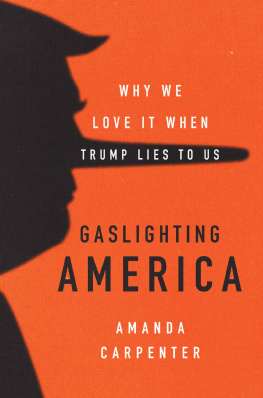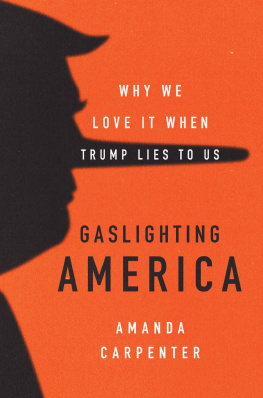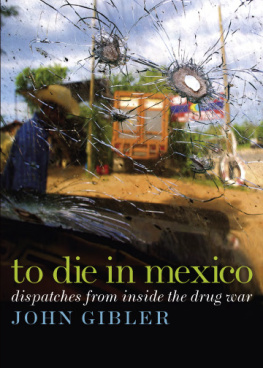MEXICOS
DRUG VIOLENCE
AND THE DANGER
TO AMERICA
THE
FIRE
NEXT DOOR
TED GALEN CARPENTER
Copyright 2012 by Cato Institute.
All rights reserved.
Library of Congress Cataloging-in-Publication Data
Carpenter, Ted Galen.
The fire next door: Mexicos drug violence and the danger to America/by
Ted Galen Carpenter.
p. cm.
Includes bibliographical references.
ISBN 978-1-935308-88-1 (hbk. : alk. paper)
1. Drug trafficMexico. 2. Drug trafficMexican-American Border Region.
3. Violent crimesMexican-American Border Region. 4. Drug control
Mexican-American Border Region. I. Title.
HV5840.M4C367 2012
362.450972dc23
2012027094
Cover design by Jon Meyers.
Printed in the United States of America.
CATO INSTITUTE
1000 Massachusetts Ave., N.W.
Washington, D.C. 20001
www.cato.org
To Carson and Savannah:
May the drug war and the tragic violence it has spawned in
Mexico and elsewhere be nothing more than an unpleasant
historical episode by the time you reach adulthood.
Contents
I owe a debt of gratitude to many colleagues and friends for their assistance in the course of this book project. My administrative assistant, Charles Zakaib, devoted considerable time and effort diligently tracking down importantsometimes elusivesources. Justin Logan and Malou Innocent offered helpful hints and suggestions regarding developments in Mexico and the United States that were relevant to the topic of the drug war. Ian Vasquez, director of the Cato Institutes Center for Global Liberty and Prosperity, provided invaluable assistance in multiple ways. Christopher Preble, my successor as Catos vice president for defense and foreign policy studies, helped free up my time by accepting more than his share of media interview requests on other topics.
Juan Carlos Hidalgo and Gene Healy both took many hours from their own busy schedules to provide detailed critiques of an earlier draft of the manuscript. Their contributions, as well as the excellent copyediting effort by Karen Garvin, significantly improved the final product. Any remaining errors of either style or substance are, of course, solely my own.
As usual, Catos top management, including President Ed Crane, Executive Vice President David Boaz, and Board Chairman Robert Levy, offered their support and encouragement for this latest analysis of the destructive consequences of the international war on drugs. So, too, did the late Cato board chairman, William A. Niskanen, who viewed drug policy with the same intellectual rigor that he brought to so many other issues. Bill was an early, consistent, and incisive critic of the conventional wisdom regarding the proper strategy for dealing with the issue of illegal drugs. His massive intellectual contribution to the cause of liberty and intelligent public policy will be sorely missed.
Thanks to the leadership of those individuals, Cato experts have been in the forefront of scholarship for more than three decades, documenting both the futility and the horrific unintended side effects of drug prohibition. That effort is paying dividends as more and more opinion leaders in the United States and other countries have turned against the war on drugs. Mexicos former president, Vicente Fox, has been especially eloquent and courageous in criticizing the terrible harm that Washingtons utopian crusade has inflicted on his country. So, too, has Mexicos former foreign minister Jorge Castaeda and Brazils former president Fernando Henrique Cardoso.
Finally, I would like to thank my wife Barbara for her patient support and encouragement throughout this project. She has been my muse for more than four decades, and no amount of gratitude on my part would be sufficient to compensate her for her contribution to my success.
Today, many prohibitions, myths, and past beliefs on numerous issues have been torn down. We now stand on the final frontier of the old approach to drug policy, as evidence mounts that the current strategy is not working. There is already an irresistible push around the world for a new, more realistic, and more constructive policy paradigm. Ted Galen Carpenters thoughtful new book demonstrates the need for change with great clarity.
Legalization of drugs offers the best exit from the quagmire in which we find ourselves. Choosing legalization would provide substantial benefits in a number of respects. Perhaps most important, it would separate the issues of crime and violence from the issues of personal and public health. Law enforcement and security agencies could then focus their time and resources on the former, instead of treating ordinary drug users as criminals. In fact, ending prohibition would enable those agencies to strengthen their responses to a whole range of crimes.
The fear that legalization would lead to an explosion of drug use seems unfounded. Portugals experience with its bold drug policy reforms over the past decade indicates that drug use might actually decline once prohibition is ended. In that country, drug users who might have a dependency problem can seek treatment without fear that they might run afoul of the criminal justice system. Because that fear is gone, more of them have sought treatment.
An especially important benefit from legalization is that it would greatly decrease the revenues available to the violent drug cartels. That is especially important for my country. The cartels in Mexico receive billions of dollars each year from trafficking in illegal drugs. According to the United Nations Office on Drugs and Crime, gross profits from cocaine sales in North America reached $34 billion in 2009. The cartels use their vast profits to terrorize the Mexican people and to undermine the countrys institutions.
Ending prohibition would enable governments throughout the world to concentrate on educating people about the potential perils of drug use. The underlying message would be that although citizens in a free country should have the right to chooseeven if the choice is to use illegal drugssome choices are much wiser than others. With freedom comes responsibility, and avoiding drug dependency is the responsible choice. Citizens are much more likely to heed such a message if the government does not criminalize unwise behavior.
That distinction is especially important with respect to young people. One of the great tragedies in Mexicoand to a significant extent in the United States as wellis that the drug gangs have tempted them to go down the wrong path. The temptation of quick riches from working for a criminal organization has all too often proven irresistible. Legalization would greatly weaken the ability of the drug cartels to entice young people into that terribly destructive career. According to the Mexican daily newspaper Reforma, more than 50,000 people mostly young men in their teens and twentieshave perished in the drug-related violence in my country in recent years. That is an unspeakable tragedy. Young people represent the future of the country, and they deserve a far better fate than that.
Ending prohibition and restoring peace is critical to my country. We need to divert the financial resources that are now absorbed by the drug trade to legaland more productivechannels. That is necessary so that Mexico can move forward and not merely watch as other countries pass us by.
It is time for new and audacious ideasfor creative thinking regarding drug policy. When what we have tried doesnt work, it is time that we implement new approaches. Those approaches must place the fundamental values of peace, consensus, predictability, and legality at the forefront.


